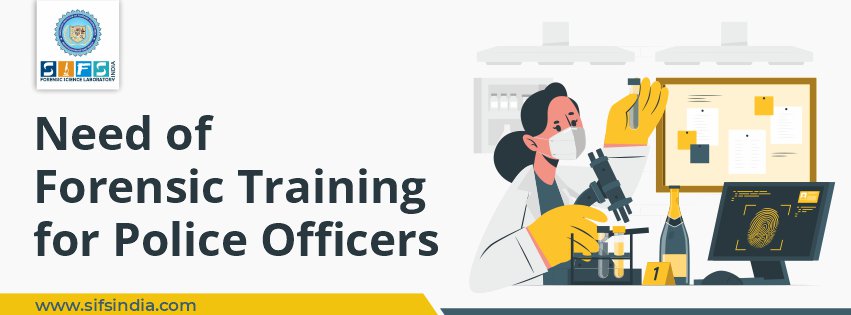We must be familiar with the fact that several attempts to modernize criminal law and order have failed repeatedly. Thus, failing for years to provide justice to the citizens of our country. A basic and one of the most effective roles of policing involves having specialized detectives.
India does not have any special forensic team in any of the police stations in any part of the country.
IPS officers are managers, while state-level officers are the only ones empowered to investigate, which is why they are given the title of ‘investigating officer’.
They are charged with investigating everything all at the same time, with each officer having a national average of several hundred cases at any given time.
An 'investigating officer' in a police station can be anyone starting from the rank of "Head Constable to the highest rank i.e., S.I", for investigating a case.
They collect the evidence from the scene of the crime, do the packaging, sealing and send them to the FSL of their region.
This can lead to losing a chance or missing evidence or two from the crime scene which could have helped in solving the case, if proper methods and investigations are done then half of the case can be solved on the scene of the crime itself. Hence, forensic training for police officers is must to avoid losing evidence which plays a major role in solving a crime.
Why 750,000 Police Cases Are Pending/ Closed Every Year Due to 'Lack of Evidence??
On average, about 750,000 complaints registered under the Indian Penal Code (IPC) and Special and Local Laws (SLLs; specific to a certain subject or state) were disposed of annually in the five years to 2020, successive Crime in India reports compiled by the National Crime Records Bureau (NCRB).
These cases were deemed true, i.e., the incidents occurred, per police records, but were closed due to 'insufficient evidence or untraced or no clue'.
The management structure of state and city policing units is also strange. The fairly new Protection of Children from Sexual Offences Act, 2012 was enacted, but there are not enough investigators who are trained to deal with such crimes.
While police are just a state subject, police forces across India face a systemic lack of capacity, forensics support, and training, which affect evidence gathering during investigations, former and serving police officials, and researchers.
To improve investigations and case disposal by police, stations need forensic resources to support, trained staff, and more personnel in a dedicated investigations wing.
Besides the shortfall in human resources, investigations infrastructure such as forensic laboratories also fall short.
Modern, state-of-the-art forensic support is a must for efficient crime investigation and prosecution, and forensic science labs (FSLs) and mobile forensic units are crucial for gathering evidence for investigation.
Well-equipped mobile forensics units/vans have facilities to collect DNA samples and undertake on-the-spot tests, for instance.
FSLs provide support for analysis of ballistics, fingerprinting, DNA and other evidence.
With police stations lacking equipment, and trained staff missing at various levels of evidence gathering and analysis, investigation gets delayed and genuine cases get closed unresolved.
Impact of COVID in Police Station
Police were among the first responders to the COVID-19 disaster and are popularly listed among the “corona warriors,” along with health care personnel.
With the COVID-19 pandemic, we increasingly heard that our protectors were also vulnerable and needed protection.
Police were exposed to a unique set of challenges in their day-to-day duties that increased the risk of health concerns from occupational stressors, including operational and organizational stressors.
During the past several months, all police services have been challenged even more due to COVID-19.
Police work is very rewarding and noble, yet challenging and stressful at times. The added pressure police officers faced due to COVID-19 have certainly added to their level of stress.
India, as a nation, got an opportunity to learn from their experiences and initiated a complete lockdown in the whole country for months.
The economies around the world got hit by such lockdowns due to which, as many economists predict, a recession seems inevitable.
The unemployment rate likely increased and people were left with less disposable incomes, paving the way for an economic crisis.
With the experience of a major crisis in the past, we have noticed that the crime rates in and post such situations tend to increase.
Crimes like suicide, robbery, cybercrime (due to more activeness on the internet), domestic violence, etc. took place due to the lockdown and the mental pressure/ stress, anxiety, depression, mental health trauma of an individual got at its peak.
The increase in COVID cases also led the staff to get involved in protecting the survivors, which simultaneously decreased the strength in the places of investigations.
Due to this the cases got delayed, unattended etc. The pressure on the police staff increased due to an increase in crime rates.
If we had the proper team and facilities available on time, it could have handled the situation differently today.
What Can Be Done?
Experts have recommended that;
- Modern forensic infrastructure like labs and mobile units at state, district and police stations should be constructed with proper facilities.
- More sanctioned strength at the investigating ranks (ASI to Inspector) for conducting investigations.
- Training of forensics professionals and filling of vacancies in various state forensic laboratories.
- Proper education facilities like colleges pursuing degrees in Bachelors, Masters and PhD of Forensic Science.
- Creating a particular team of expertise in specific field of crime investigation.
Thus, in an age of technology, we also need detectives who can go through laptops, volumes of financial accounts or social media usage trends and history. With crimes, criminals' activities and evidence collection process becoming more complex, the time for detectives trained to investigate one particular crime will play a major role in crime investigation. Deep reflection is required of our police.
Conclusion
I would like to conclude by saying that after reading so many role of forensic science in legal system and its importance in solving a crime, our country must evolve this field at its best as, India is one of the most developing countries in the world. And it is high time for us that we improve the crime rates of our country by implementing correct methods and the need of forensics in Police stations.
References
- m.timesofindia.com
- ncrb.gov.in
- indianlawportal.co.in

 September 26, 2021 - BY SIFS India
September 26, 2021 - BY SIFS India